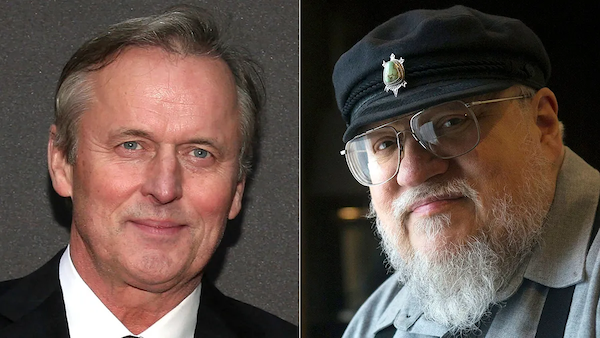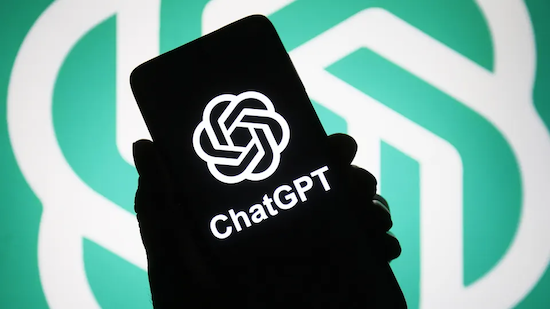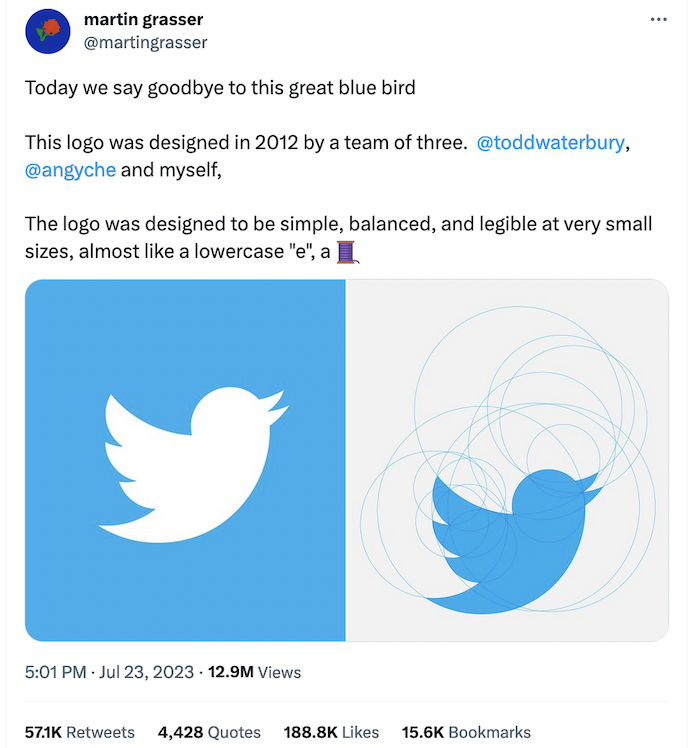
(quote)
George R. R. Martin, Jodi Picoult and other famous writers join Authors Guild in class action lawsuit against OpenAI
New York (CNN) — A group of famous fiction writers joined the Authors Guild in filing a class action suit against OpenAI on Wednesday, alleging the company’s technology is illegally using their copyrighted work.
The complaint claims that OpenAI, the company behind viral chatbot ChatGPT, is copying famous works in acts of “flagrant and harmful” copyright infringement and feeding manuscripts into algorithms to help train systems on how to create more human-like text responses.
George R.R. Martin, Jodi Picoult, John Grisham and Jonathan Franzen are among the 17 prominent authors who joined the suit led by the Authors Guild, a professional organization that protects writers’ rights. Filed in the Southern District of New York, the suit alleges that OpenAI’s models directly harm writers’ abilities to make a living wage, as the technology generates texts that writers could be paid to pen, as well as uses copyrighted material to create copycat work. “Generative AI threatens to decimate the author profession,” the Authors Guild wrote in a press release Wednesday.
The suit alleges that books created by the authors that were illegally downloaded and fed into GPT systems could turn a profit for OpenAI by “writing” new works in the authors’ styles, while the original creators would get nothing. The press release lists AI efforts to create two new volumes in Martin’s Game of Thrones series and AI-generated books available on Amazon.
“It is imperative that we stop this theft in its tracks or we will destroy our incredible literary culture, which feeds many other creative industries in the US,” Authors Guild CEO Mary Rasenberger stated in the release. “Great books are generally written by those who spend their careers and, indeed, their lives, learning and perfecting their crafts. To preserve our literature, authors must have the ability to control if and how their works are used by generative AI.” The class-action lawsuit joins other legal actions, organizations and individuals raising alarms over how OpenAI and other generative AI systems are impacting creative works. An author told CNN in August that she found new books being sold on Amazon under her name — only she didn’t write them; they appear to have been generated by artificial intelligence. Two other authors sued OpenAI in June over the company’s alleged misuse of their works to train ChatGPT. Comedian Sarah Silverman and two authors also sued Meta and ChatGPT-maker OpenAI in July, alleging the companies’ AI language models were trained on copyrighted materials from their books without their knowledge or consent.
More than 10,000 Authors Sign Authors Guild Letter Calling on AI Industry Leaders to Protect Writers
New York, N.Y.—July 18, 2023 —The Authors Guild, the leading professional organization for writers in the United States, has submitted an open letter to the CEOs of prominent AI companies, including OpenAI, Alphabet, Meta, Stability AI, IBM, and Microsoft. The letter calls attention to the inherent injustice of building lucrative generative AI technologies using copyrighted works and asks AI developers to obtain consent from, credit, and fairly compensate authors.
More than 10,000 writers and their supporters have signed the letter including luminaries such as Dan Brown, James Patterson, Jennifer Egan, David Baldacci, Michael Chabon, Nora Roberts, Jesmyn Ward, Jodi Picoult, Ron Chernow, Michael Pollan, Suzanne Collins, Margaret Atwood, Jonathan Franzen, Roxane Gay, Celeste Ng, Louise Erdrich, Viet Thanh Nguyen, George Saunders, Min Jin Lee, Andrew Solomon, Rebecca Makkai, Tobias Wolff, and many others.
The open letter emphasizes that generative AI technologies heavily rely on authors’ language, stories, style, and ideas. Millions of copyrighted books, articles, essays, and poetry serve as the foundation for AI systems, yet authors have not received any compensation for their contributions. These works are part of the fabric of the language models that power ChatGPT, Bard, and other generative AI systems. Where AI companies like to say that their machines simply “read” the texts that they are trained on, this is inaccurate anthropomorphizing. Rather, they copy the texts into the software itself, and then they reproduce them again and again.
Maya Shanbhag Lang, president of the Authors Guild, said, “The output of AI will always be derivative in nature. AI regurgitates what it takes in, which is the work of human writers. It’s only fair that authors be compensated for having ‘fed’ AI and continuing to inform its evolution. Our work cannot be used without consent, credit, and compensation. All three are a must.”
Bestselling romance novelist Nora Roberts expressed her support for the letter by stating, “If creators aren’t compensated fairly, they can’t afford to create. If writers aren’t paid to write, they can’t afford to write. Human beings create and write stories human beings read. We’re not robots to be programmed, and AI can’t create human stories without taking from human stories already written.”
Over more than the last decade, authors experienced a 40% decline in income, and the median writing-related income for full-time writers for 2022 was a mere $23,330 according to the Authors Guild’s most recent income survey with over 5,700 respondents. The advent of AI technology further exacerbates these challenges and will make it increasingly difficult, if not impossible, for writers—particularly those from underrepresented communities—to earn a living from the craft most spent years if not decades perfecting.
The Authors Guild, John Grisham, Jodi Picoult, David Baldacci, George R.R. Martin, and 13 Other Authors File Class-Action Suit Against OpenAI
New York, N.Y., September 20, 2023—The Authors Guild and 17 authors filed a class-action suit against OpenAI in the Southern District of New York for copyright infringement of their works of fiction on behalf of a class of fiction writers whose works have been used to train GPT. The named plaintiffs include David Baldacci, Mary Bly, Michael Connelly, Sylvia Day, Jonathan Franzen, John Grisham, Elin Hilderbrand, Christina Baker Kline, Maya Shanbhag Lang, Victor LaValle, George R.R. Martin, Jodi Picoult, Douglas Preston, Roxana Robinson, George Saunders, Scott Turow, and Rachel Vail.
The complaint draws attention to the fact that the plaintiffs’ books were downloaded from pirate ebook repositories and then copied into the fabric of GPT 3.5 and GPT 4 which power ChatGPT and thousands of applications and enterprise uses—from which OpenAI expects to earn many billions. These “professionally authored, edited, and published books” are “an especially important source of LLM ‘training’ data,” as the complaint states, because they allow GPT to provide better, more commercial outputs.
GPT is already being used to generate books that mimic human authors’ work, such as the recent attempt to generate volumes 6 and 7 of plaintiff George R.R. Martin’s Game of Thrones series A Song of Ice and Fire, as well as the numerous AI-generated books that have been posted on Amazon that attempt to pass themselves off as human-generated and seek to profit off a human author’s hard-earned reputation.
This suit highlights the particularly egregious harm to the fiction market. For fiction writers, OpenAI’s unauthorized use of their work is identity theft on a grand scale. Fiction authors create entirely new worlds from their imaginations—they create the places, the people, and the events in their stories. According to Rasenberger, “People are already distributing content generated by versions of GPT that mimic or use original authors’ characters and stories. Companies are selling prompts that allow you to ‘enter the world’ of an author’s books. These are clear infringements upon the intellectual property rights of the original creators.”
Fiction writers are not the only ones being hurt, however. Nonfiction writers are also being robbed of their work. In August, Jane Friedman posted a thread on social media about how there were books listed on Amazon with her byline, when she had not in fact authored them. These books were then listed on Goodreads as well, under her author profile. She worked with the Authors Guild to get these books removed. Misappropriating authors’ names to sell scam books though Kindle and Goodreads is not new, but has gotten worse with the advent of AI-generated content.
An author says AI is ‘writing’ unauthorized books being sold under her name on Amazon
New York (CNN) — An author is raising alarms this week after she found new books being sold on Amazon under her name — only she didn’t write them; they appear to have been generated by artificial intelligence.
Jane Friedman, who has authored multiple books and consulted about working in the writing and publishing industry, told CNN that an eagle-eyed reader looking for more of her work bought one of the fake titles on Amazon. The books had titles similar to the subjects she typically writes about, but the text read as if someone had used a generative AI model to imitate her style.
Friedman on Monday posted a well-read thread on X, formerly known as Twitter, and a blog post about the issue. Several authors responded saying they’d had similar experiences. “People keep telling me they bought my newest book — that has my name on it but I didn’t write,” one author said in response.
John Grisham, George R.R. Martin and more authors sue OpenAI for copyright infringement
John Grisham, Jodi Picoult and George R.R. Martin are among 17 authors suing OpenAI for “systematic theft on a mass scale,” the latest in a wave of legal action by writers concerned that artificial intelligence programs are using their copyrighted works without permission.
In papers filed Tuesday in federal court in New York, the authors alleged “flagrant and harmful infringements of plaintiffs’ registered copyrights” and called the ChatGPT program a “massive commercial enterprise” that is reliant upon “systematic theft on a mass scale.” The suit was organized by the Authors Guild and also includes David Baldacci, Sylvia Day, Jonathan Franzen and Elin Hilderbrand among others.
“It is imperative that we stop this theft in its tracks or we will destroy our incredible literary culture, which feeds many other creative industries in the U.S.,” Authors Guild CEO Mary Rasenberger said in a statement. “Great books are generally written by those who spend their careers and, indeed, their lives, learning and perfecting their crafts. To preserve our literature, authors must have the ability to control if and how their works are used by generative AI.”
(unquote)
Image courtesy NBC San Diego






